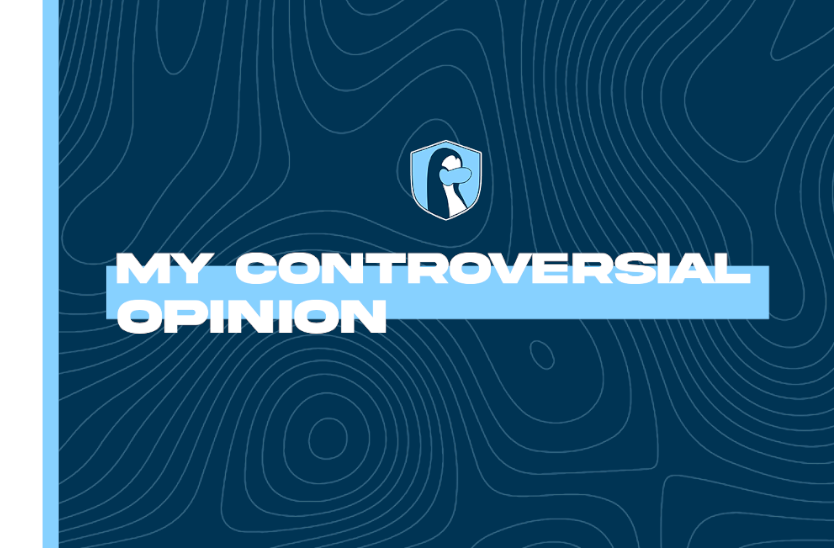Take a moment to picture an ideal army leader. They are charismatic, active, good at recruiting and always willing to lead their army into battle. Now picture a bad one. They might be inactive, neglectful in their duties, assume that their staff can manage everything or just be flat-out lazy. The characteristics of the latter type of leader are often confused with those of a leader who avoids war.
Note: This post contains the opinions of its author. The post does not reflect upon the stance of Club Penguin Armies.
People often tend to hail leaders who actively seek wars as the heroes of our community. They are often lauded as relentless, fearless leaders. They are said to go above and beyond to ensure that everyone knows that their army is not to be trifled with. But is this really what makes a good leader? Does their constant hunger for power, regardless of the cost, really bring them the respect of the community?
One of the biggest benefits of wars is a higher Top Ten rank, thanks to the bonus battle points. These exaggerated ranks give leaders and their staff a sense of achievement. After all, it is rewarding to see your army dominate your direct competitors on the Top Tens. But is this really an achievement? Throughout CPA history, armies have placed too much importance on the Top Ten. This phenomenon grew exponentially after the Top Ten formula became known publicly. Army Legend Bluesockwa1 highlighted this issue several times, exposing armies for abandoning the pursuit of creating an enjoyable environment for their troops, in favor of manipulating the formula to get two-three more extra points.
Armies have perfectly reasonable motivations for staying away from wars as much as other armies that enjoy engaging in them: they can’t devote several hours a day to leading, they don’t want to sacrifice quality of events for quantity, they’re not willing to tackle the inevitable slump after the war ends. These are all perfectly valid reasons, and just as valid as a leader wanting to war to right a wrong or simply for the fun of it. Constantly warring armies barrages an army’s troops with lengthy battle after battle, providing none of the appeal of actually playing the game. This nullifies the charm of playing Club Penguin post-childhood entirely, and assumes that each troop is willing to spend hours each day spamming and clicking at a computer screen but not really playing.
This is not to say that engaging in a war is wrong, or that leaders are wrong for enjoying leading battles. However, a large emphasis has been put on wars recently, inflating their importance to make them appear more appealing than they are. Consider the World War IX, a large scale alliance war where no one ultimately won or lost. No one rightfully won any servers. The only plausible victory in this war came from something that could barely be called a loophole, thanks to a leader not reviewing a post. There is no excitement in this type of war, only loss. Loss of time, of morale and of servers.
The only people who have true control during battles are the army leaders, who may often take the willingness of their troops to be strung along in a war for granted. Sure, it is fun for the first week or two. Wars can be an exciting prospect of righting a perceived wrong or conquering land that another, smaller army cannot defend properly. They are new, fresh events that rouse troops from a sedentary state and bring the army together in the name of conquest. Wars can also give new recruits an exciting taste of what it really means to be in an army, and remind the veterans of the good ol’ days.
However, this euphoria is short and quickly gives way to exhaustion for both troops and staff. Engaging in wars is good but it needs to be mediated by periods of normalcy. After all, if an army is always at war, is it ever really? And if it relies too heavily on the excitement of battle, it is not truly a good army but a dying one that needs constant stimulation to stay relevant. Such an army leader only knows how to handle themselves in a war, never peace.
The warmongering leader often seeks out wars for their own entertainment and fails to get a grasp of the big picture. This easily leads to the leader not learning from their own mistakes, or not achieving anything great out of the war other than a participation trophy and personal satisfaction. What does constant warring really bring for armies? Tired troops, staff who have too much demanded of them, a leader who most likely wars for the “fun of it” and fails to consider anyone else?
Many leaders buy into the flawed philosophy that an army’s purpose is to be at war. Peace times and regular events are just as important, if not more. It is easy to get your entire army riled up and active for an invigorating war, but true strength lies in the silence of peace.



